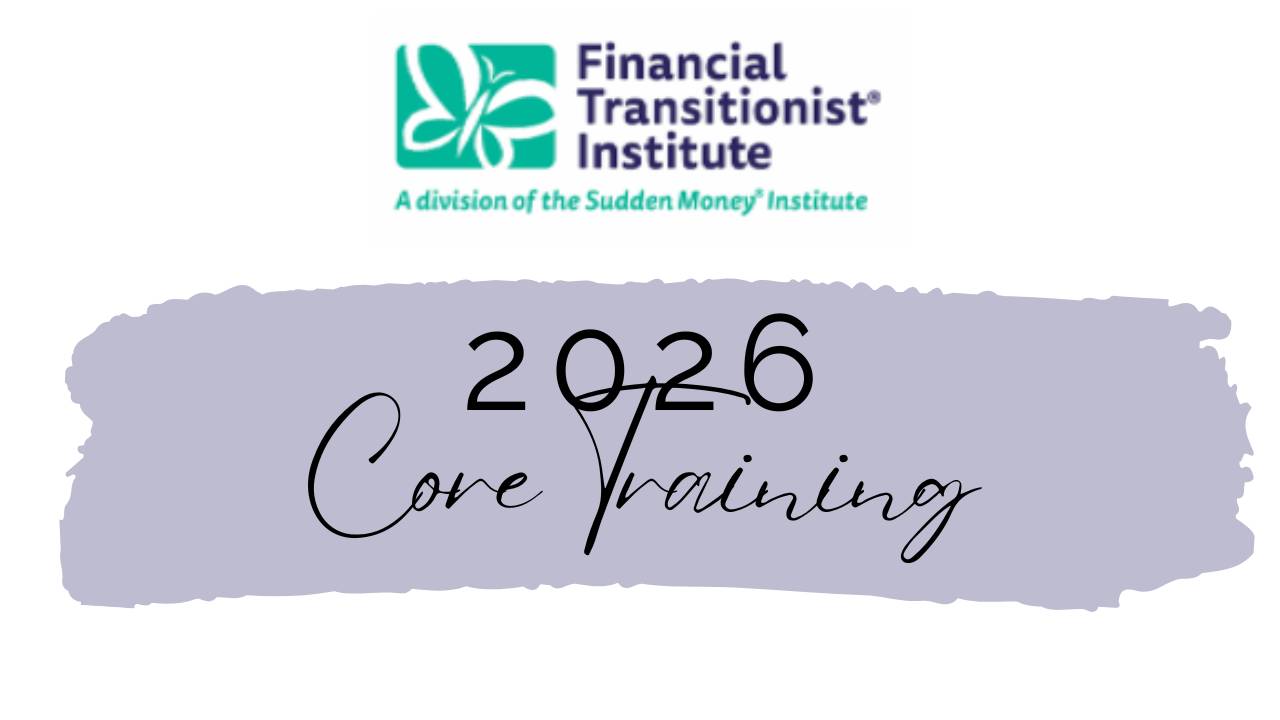On Trust and The Unknown
Jan 20, 2020
Written by Mary Martin, PhD
Rachel Botsman, the Trust Fellow at Oxford University, defines trust as “a confident relationship with the unknown.” Botsman’s podcast, Trust Issues is newish and I highly recommend bingeing the first season to get yourself up to date. In the episode entitled, I Don’t Know with Tea Uglow, Botsman and Uglow, of Google’s Creative Lab, have a warm, rich conversation. Of particular note is how trust issues often come from the fact that people are frightened of uncertainty. Fear prevents trust. Uglow talks about how getting past fear is about communication.
Fear and Communication
When we’re talking about trust in the advisor-client relationship here at the Financial Transitionist Institute, we focus on communication and on being okay with uncertainty. Uncertainty is a foundational element of major life events (not to mention life, in general). There is always a large swath of unknowns in the transition landscape. Perhaps the largest part is: What will life look like when I can talk about this major life event as if it’s “over” and I have adapted to whatever changes have occurred? Realistically, we don’t know. We can’t know. Something else entirely unexpected can happen. We can do some planning and some adaptive work, but we cannot know what is going to happen. And that’s okay. It has to be. This requires a different kind of thinking about authority on the part of an advisor.
We Must Be Okay With the Unknown
Uglow says, “You don’t know until you know” (the truth of a situation or what will happen). The expertise that is needed from the advisor, who ideally will model it for the client, is about having a confident relationship with the unknown. It’s also about being able to be open and curious about the future. Behaving as if all of the bases are covered and if you just follow this process everything will turn out better than when we started is disingenuous. We don’t know that everything is going to turn out better. We don’t know how things will go . . . until they have gone. All of us, as advisors and parents and children and partners, need to befriend the unknown. We need to learn to be okay with it.
The Vulnerability of Trust
There’s a vulnerability in the admission that the unknown is just that. But it’s liberating as well because it’s true. “Trust is this weird mixture of hopes and desires and expectations, but also our deepest fears at the same time,” Botsman says in the episode: Peak Fear with Ant Middleton. Trust is how we solve problems with risk, according to Middleton. And the vulnerability of the admission of uncertainty earns trust.
The How of Trust in Relationships
No one needs to explain the Why behind Trust in relationships. It makes our lives easier. It makes our relationships better. It makes for more authenticity in leadership. It even saves lives. The How is more elusive, though. Some people say that trust is earned, while others say it is granted. Whichever camp you’re in for that debate, being transparent and confident about your relationship with the unknown is at the very least honest. And honesty in relationships is rarely a bad idea.
If you want to learn more about Financial Transitions Planning . . .
including how to communicate with a different lens than the one you’ve likely been using, check out our webinar. And if you’re ready for our yearlong program in Financial Transitions Planning (“Core“), you can sign up here.
Stay connected with news and updates!
Join our mailing list to receive the latest news and updates from our team.
Don't worry, your information will not be shared.
We hate SPAM. We will never sell your information, for any reason.

